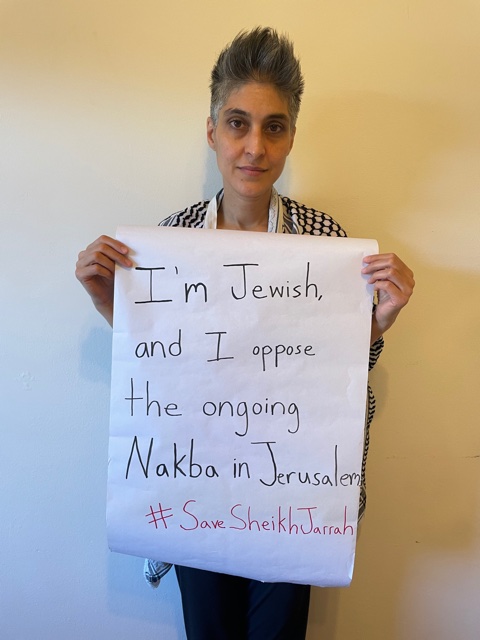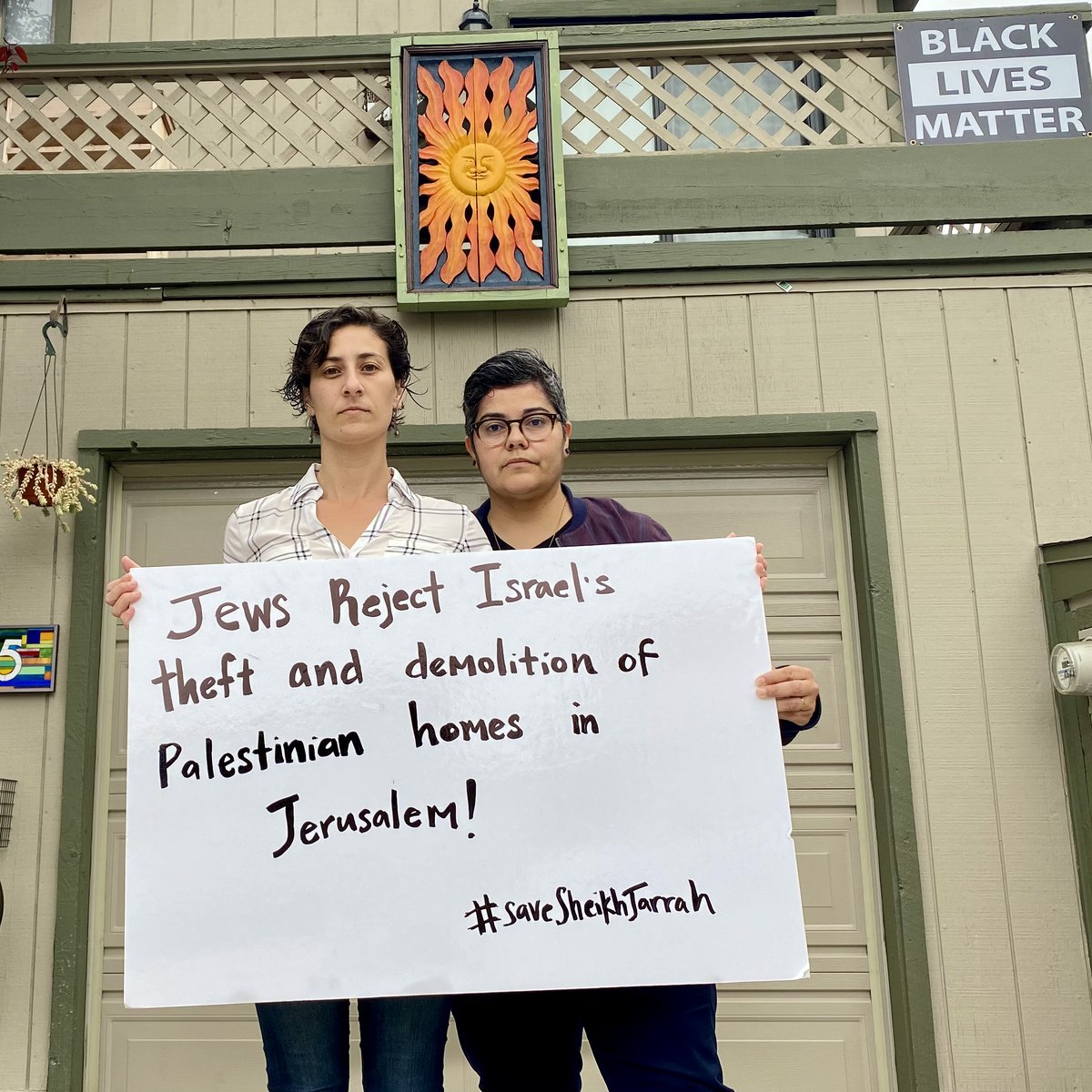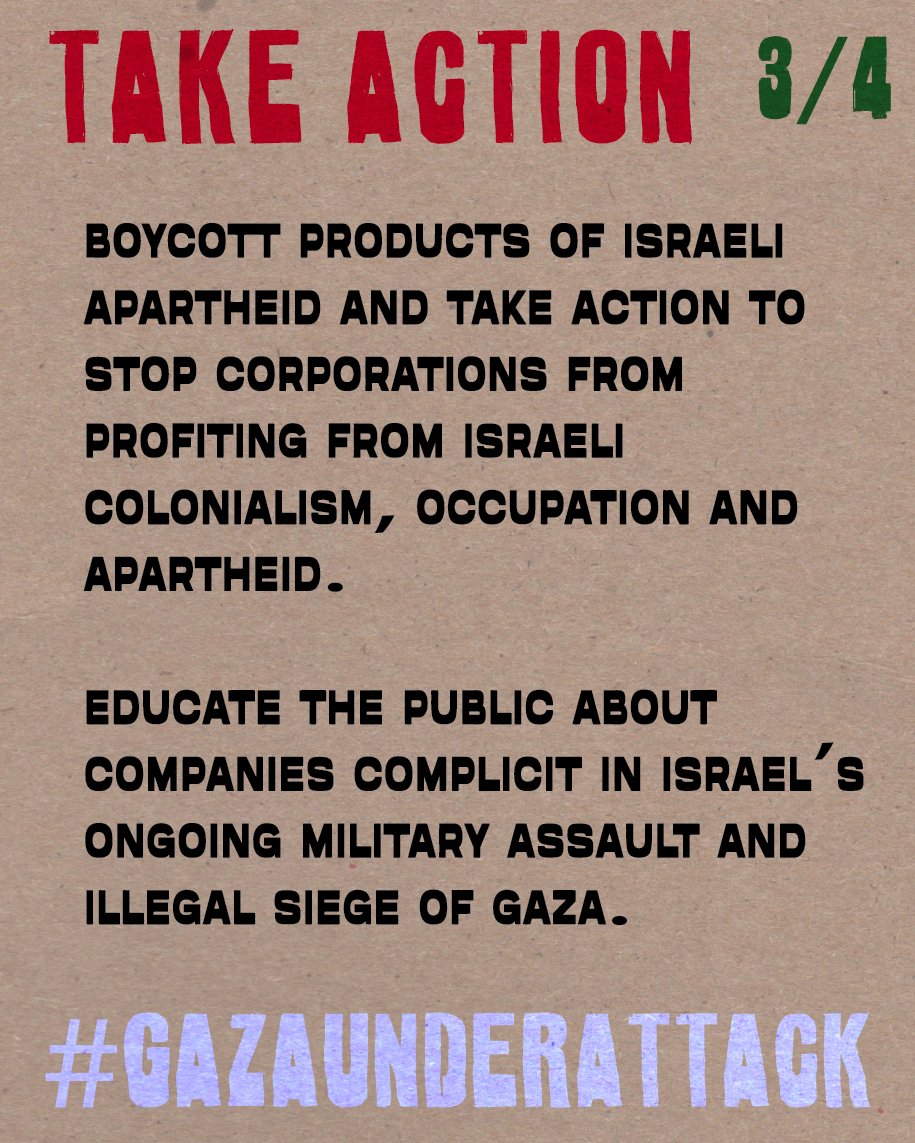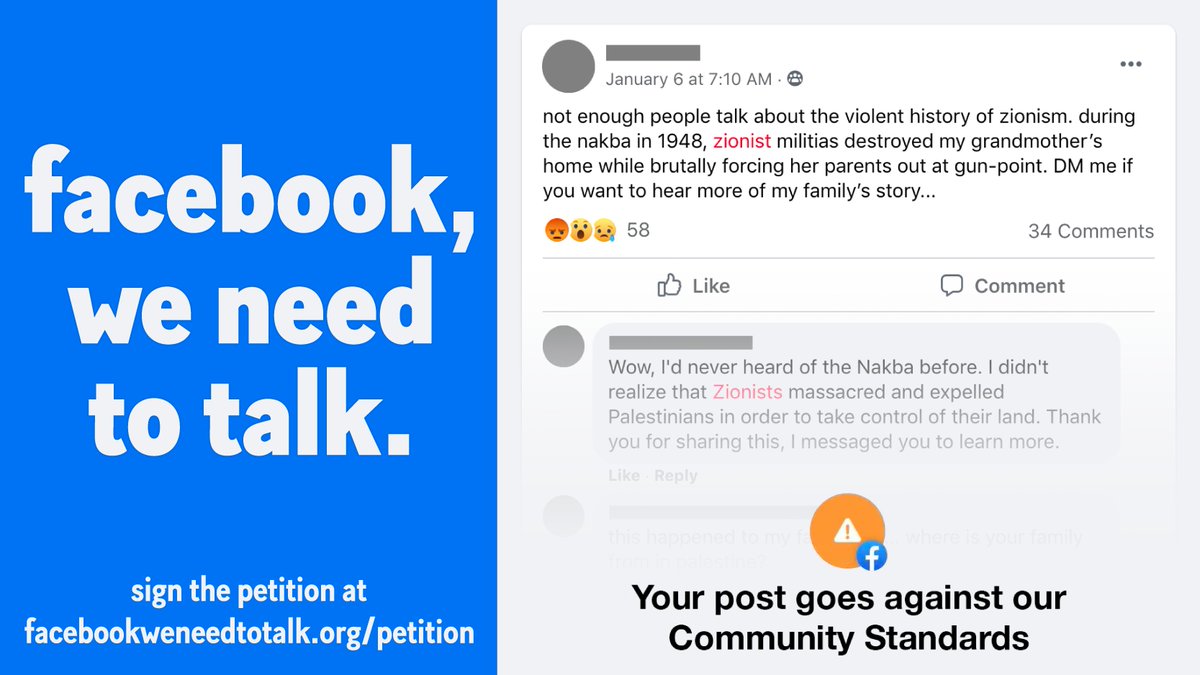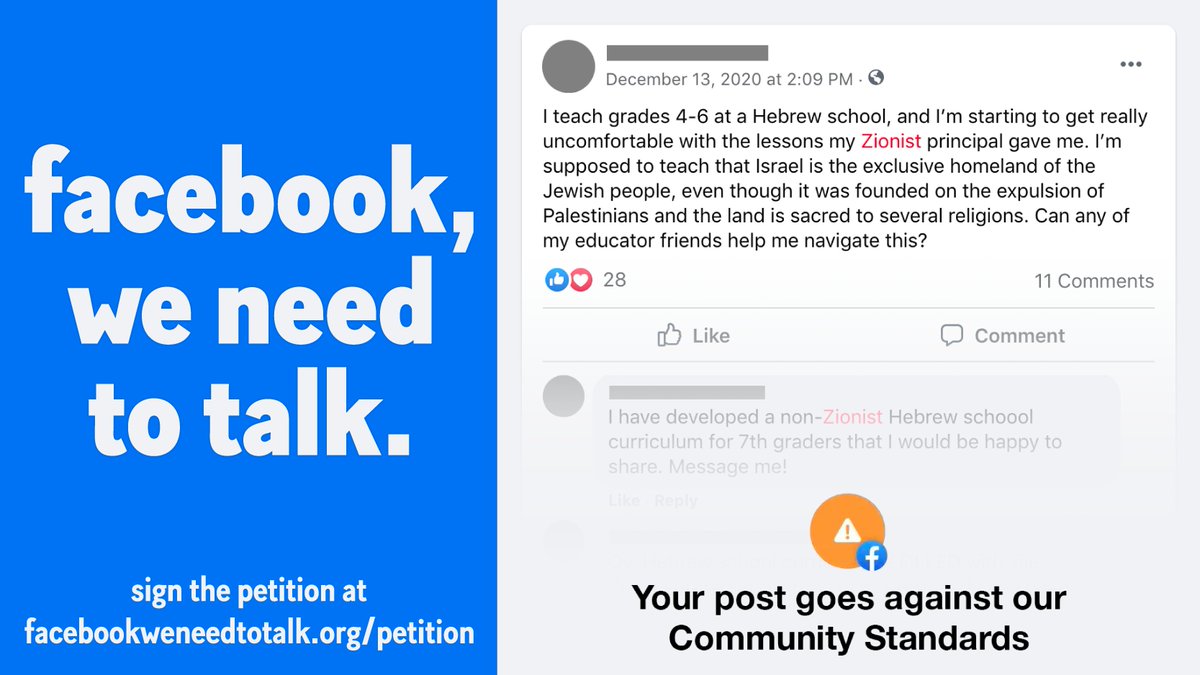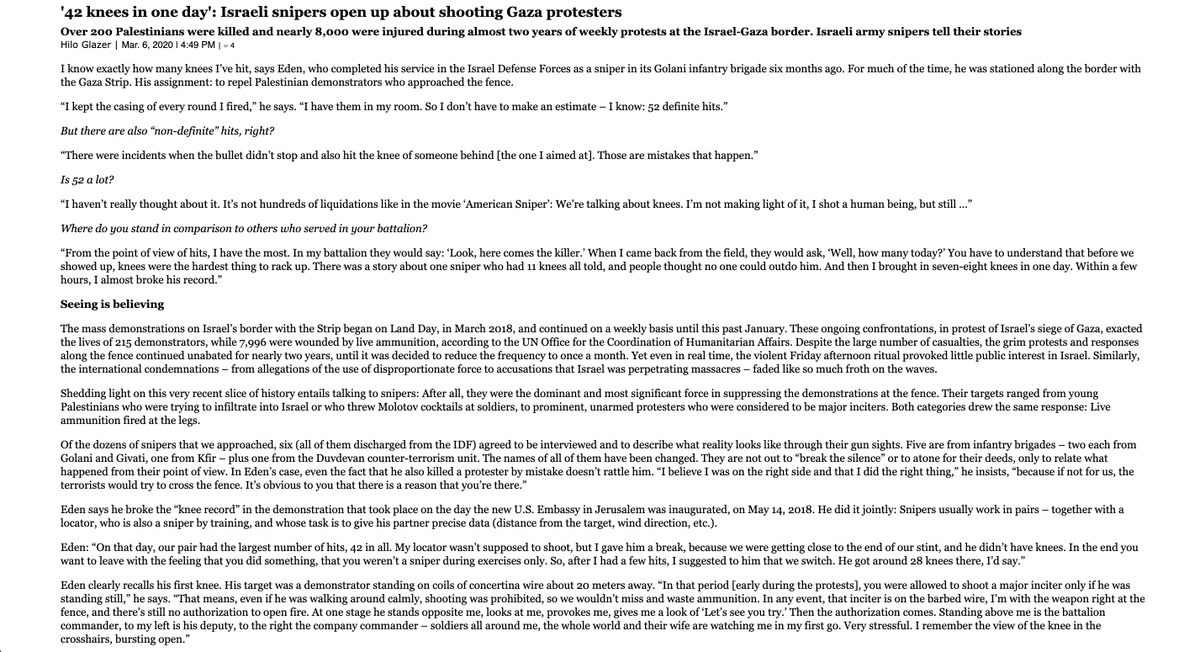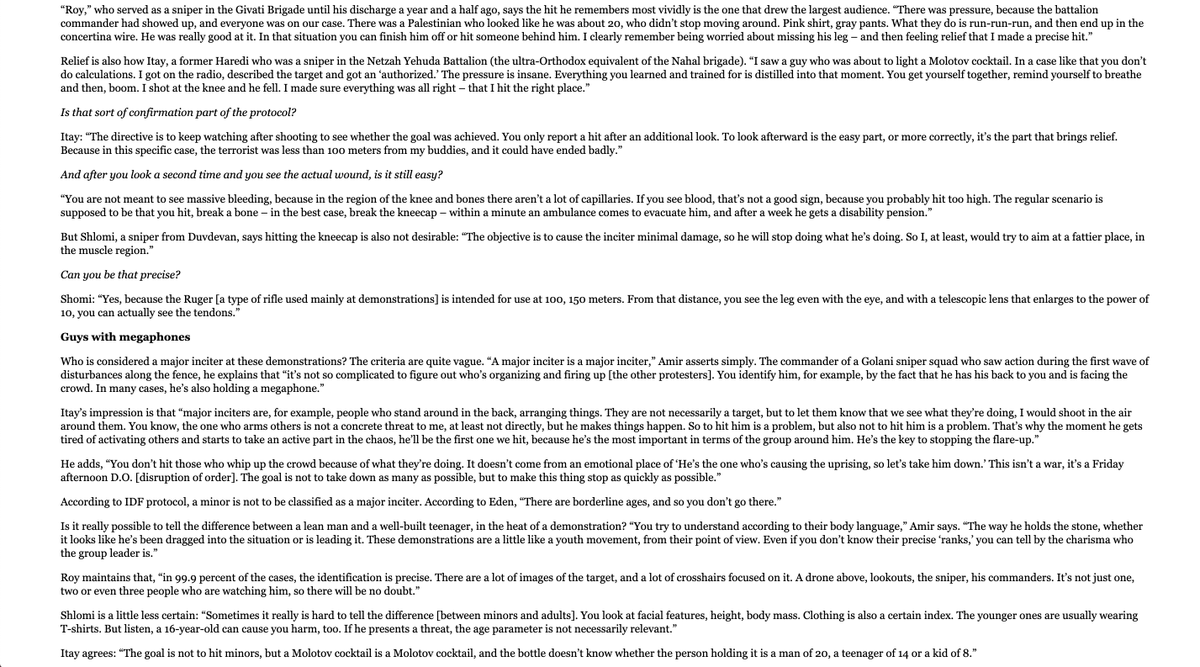
This Shabbat, we invite you to talk to your family, your friends, and your community about the atrocities that the Israeli government, military, and civilians are perpetrating against Palestinians — from Sheikh Jarrah, to Gaza, to the West Bank, to inside ’48 borders.
(thread)
(thread)

We know that misinformation and indoctrination runs deep in our community, and that talking about Palestine and Israel is an emotional minefield for so many. Talking with our people may be difficult, and changing their hearts and minds may take time, effort, and commitment.
2/7
2/7
But, as @m7mdkurd reminds us, the oppression that Palestinians endure under Israeli apartheid and settler-colonialism will always be harder than the work we do to transform our communities — and nothing less than the end of that oppression is at stake.
3/7
3/7
Here are some tips for having difficult conversations:
1) Listen. Ask questions about what they believe, what they value, what they hope for, and what they fear. You can empathize with and affirm them, without agreeing with the ways they see the problems or the solutions.
4/7
1) Listen. Ask questions about what they believe, what they value, what they hope for, and what they fear. You can empathize with and affirm them, without agreeing with the ways they see the problems or the solutions.
4/7
2) Ask them what they know. Often people know less than they think they do. By simply asking calm questions and sharing facts, you can help them realize they are missing pieces of the story.
3) Frame the conversation using shared values.
4) Emphasize what you can agree on.
5/7
3) Frame the conversation using shared values.
4) Emphasize what you can agree on.
5/7
5) Don’t make it a competition or history lesson. Shaming and lectures rarely work.
6) Avoid “triggering the frame.” Repeating a misconception to disprove it often ends up reinforcing it in people’s minds. Describe your vision for change with a positive framing.
6/7
6) Avoid “triggering the frame.” Repeating a misconception to disprove it often ends up reinforcing it in people’s minds. Describe your vision for change with a positive framing.
6/7
7) Show don’t tell. Don’t use academic or political jargon. Describe Palestinians’ reality using everyday, human language.
8) Be confident! You don’t have to be an expert to be on the side of Palestinian freedom. Start with what you know, and then learn together.
7/7
8) Be confident! You don’t have to be an expert to be on the side of Palestinian freedom. Start with what you know, and then learn together.
7/7
• • •
Missing some Tweet in this thread? You can try to
force a refresh




